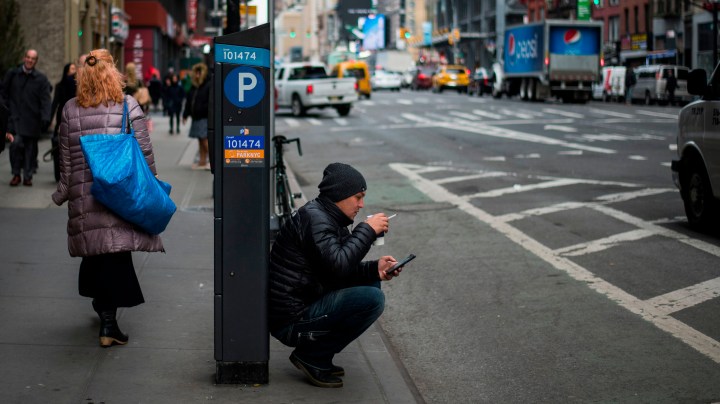
Modern parking “meters” give cities the power to reduce congestion
Modern parking “meters” give cities the power to reduce congestion


I was in Brooklyn, New York, and looking for something elusive: a legal spot big enough to parallel-park my rented Chevy Malibu. And like a miracle on DeKalb Avenue, there it was, right in front of Junior’s coffee shop.
I sent my son in to order and went to feed the electronic meter. I tried to put in quarters, but the slot was jammed. I tried several credit cards and it rejected every one. And each time, the machine made the helpful suggestion: You could use New York’s smartphone app and pay online.
So I logged on, provided a bunch of personal data and filled my virtual parking wallet. Minimum purchase? $25. For a $2 parking spot.
After all that time — and technology — I thought, there’s got to be a better way. Why not just go back to the old meters that take nickels, dimes and quarters?
“We do have a few coin meters in Cleveland,” said Robert Simons, director of the School of Urban Affairs at Cleveland State University. “Not so convenient in terms of time-intensity for collection and, of course, ‘lovely Rita, meter maid’ is no longer employed.”
The new kiosks and apps can be confusing, glitchy and time-consuming. Still, “the technology has made a lot of changes possible,” said UCLA urban planning professor Donald Shoup, who wrote the book on this, “The High Cost of Free Parking.”
He said an online payment system can adjust the cost of parking — by location, by the time of day, by the size of the car — to reduce congestion or improve the environment.
“Some cities give lower prices for cars with lower emissions,” Shoup said.
And cities can jack up the price of parking, Robert Simons said, to discourage people from driving or even owning a car in the city. “It’ll make it more annoying for people to go out and feed the meter. They’ll find some other way to get to work.”
It costs $20 to park in one of the private lots near Junior’s. If the meter in front of the restaurant charged that much, I might take the subway next time. And, it turns out, I can get a refund on the money left in my virtual wallet.
Still, it all left a bad taste in my mouth. And paying for parking took so long, my matzoh ball soup got cold and the server had to reheat it in the microwave.
There’s a lot happening in the world. Through it all, Marketplace is here for you.
You rely on Marketplace to break down the world’s events and tell you how it affects you in a fact-based, approachable way. We rely on your financial support to keep making that possible.
Your donation today powers the independent journalism that you rely on. For just $5/month, you can help sustain Marketplace so we can keep reporting on the things that matter to you.











